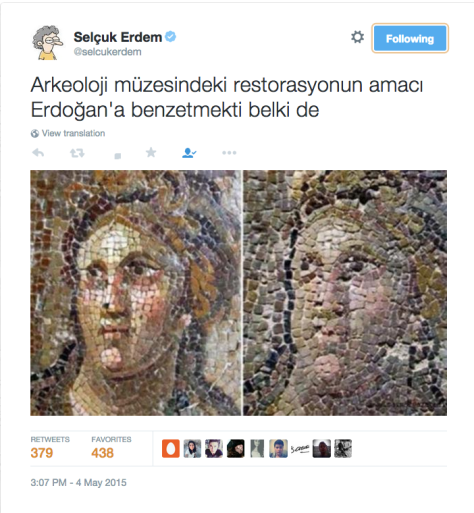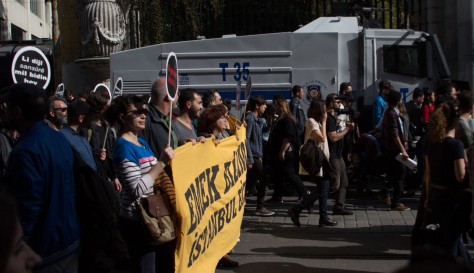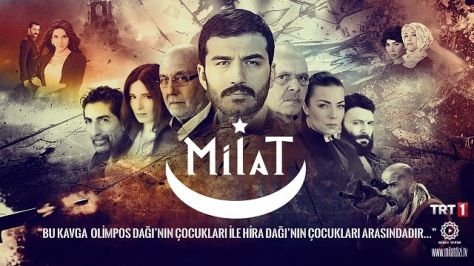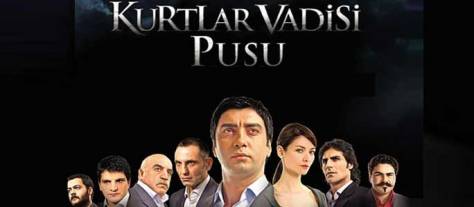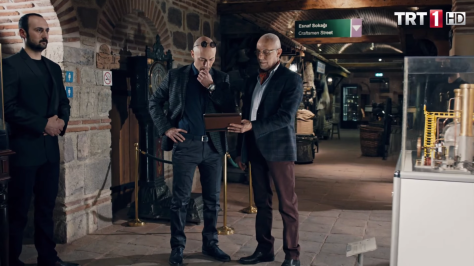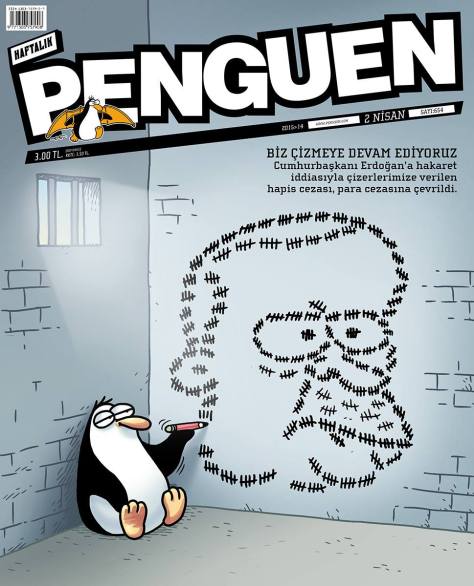This review was solicited by the Journal of American Studies of Turkey in 2014. It was accepted that year and slated for publication in January 2016. I received notice the week before publication that, due to what editors deemed the “contentious” nature of the topic, this particular review would not be published. I reproduce it below in its originally accepted form.
Gülen: the Ambiguous Politics of Market Islam in Turkey and the World. Joshua D. Hendrick. New York: New York UP., 2013. H/bk 276 pp. ISBN 978-0-8147-7098-6. Price $49.00.
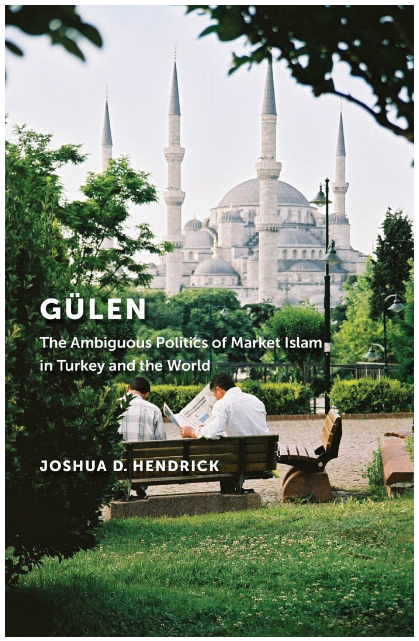 Hendrick offers a political ethnography of the Gülen Movement (GM), a controversial community inspired by the Turkish Islamic cleric Fethullah Gülen that includes interests in education, business, finance, and media both in Turkey and throughout the world. Though the descriptor “faith-based” is often used to describe the GM, and many critics refer to the group in alarmist terms that reference Islamic revival, Hendrick’s account emphasizes the market-oriented decision-making that works at all levels of the group, suggesting that members are “best presented as products of, rather than as a fundamentalist reaction to, the processes of neoliberal globalization” (9). His fieldwork, conducted primarily between 2005-2008, with supplementary work continuing through 2012, included attendance at numerous conferences, over 100 conversations with members, sympathizers, and critics of the movement, 55 formal interviews, and 1000 hours of participant observation at the GM’s Akademi in İstanbul, a publishing house, think-tank, and place for prayer and education that serves as the nerve center of the GM.
Hendrick offers a political ethnography of the Gülen Movement (GM), a controversial community inspired by the Turkish Islamic cleric Fethullah Gülen that includes interests in education, business, finance, and media both in Turkey and throughout the world. Though the descriptor “faith-based” is often used to describe the GM, and many critics refer to the group in alarmist terms that reference Islamic revival, Hendrick’s account emphasizes the market-oriented decision-making that works at all levels of the group, suggesting that members are “best presented as products of, rather than as a fundamentalist reaction to, the processes of neoliberal globalization” (9). His fieldwork, conducted primarily between 2005-2008, with supplementary work continuing through 2012, included attendance at numerous conferences, over 100 conversations with members, sympathizers, and critics of the movement, 55 formal interviews, and 1000 hours of participant observation at the GM’s Akademi in İstanbul, a publishing house, think-tank, and place for prayer and education that serves as the nerve center of the GM.
Hendrick approaches the intersection of Islam and politics in market terms, and his account is filled with the language of markets. In his own words, “this book explains how neo-liberal economic restructuring in the 1980s provided new actors with greater access to wealth accumulation, and subsequently, with increased ability to affect the development of public opinion in a privatized marketplace, which facilitated a shift in Turkish Muslim politics from the politics of revolution to the politics of participation” (16). The GM in particular has participated in such a politics in two ways: first by becoming the “leading private producer of ‘Turkish Islam’ for the twenty-first century religious marketplace” (24), and second by producing and distributing a wide range of goods and services in global capital markets.
Hendrick provides a brief account of the political economy of Muslim politics in Turkey, with the history of tension between secularists and Islamists as a background. He notes that the religious marketplace became far more active in the wake of the 1980 coup and suggests that the ascendance of the Justice and Development Party (AKP) regime since 2002 has brought about a shift in which “contemporary political divides in Turkey are less defined by ‘secularism’ versus ‘Islamism’ than by ‘defensive nationalism’ versus ‘conservative globalism’” (53). One of the key concepts Hendrick relies on to explain the GM’s success is strategic ambiguity, a reference to the lack of clarity about the goals and structure of the movement. Such ambiguity is pervasive at all levels, characterizing issues ranging from Gülen’s US residency application to the ties that exist between various would-be Gülen affiliates.
In discussing these affiliates, Hendrick offers a hierarchical model for understanding the various levels of association: the cemaat, a core community of close associates; the arkadaşlar, a loosely-knit group of devoted friends; the yandaşlar, who come from a variety of backgrounds and sympathize with some of the group’s goals; and the consumers who purchase goods and services from the GM with or without knowledge of the group simply because they meet needs. Though the spiritually devoted congregate towards the core community, Hendrick stresses that participants at all levels employ instrumental rationality in their choices to participate in the group, as a number of benefits are offered to those who choose to engage. Among the most tangible of these benefits is educational support, as education is one of the biggest sectors in which the GM is involved both in Turkey and globally. In Turkey, the GM started by offering housing, tutoring, and other forms of support to university students in the 1970s. After the 1980 coup, major shifts in the educational system prioritized standardized testing and a new sector of privatized test-prep courses, dershane(ler), arose in response. GM affiliated courses have been among the most successful and lucrative in this sector, and they also serve as recruitment centers for those who might wish to join the community.
Addressing the GM’s finances, Hendrick touches on two key practices among the community. The first is himmet, the regular donation of funds to the movement by members, many of whom have in turn benefitted from such funds. The second is the tendency for community members to start business ventures in any area where goods and services are needed by the group and then to practice preferential trading within networks of GM affiliation. GM affiliated firms are present in sectors including publishing, educational supplies, architectural design, energy, banking, and media. In reference to the latter, Hendrick provides a chapter-length discussion of the various Gülen-affiliated media bodies, foremost among which are the Feza Group, which owns Turkey’s highest circulating daily paper, a popular English-language daily, and two television channels among others, and the Journalists and Writers Foundation (GYV), which publishes books and journals related to Gülen and distributes tolerance awards.
Though Gülen interests are present worldwide, Hendrick focuses on those based in Turkey for most of the book before moving to a case study of the GM’s educational endeavors in the US. Gülen-affiliated organizations took advantage of new laws that encouraged charter schools in the 2000s, founding schools that quickly gained a reputation for excellent educational standards. Hendrick counts at least 136 such schools across 26 states by November of 2012. Starting in 2009, controversies about the schools began to emerge due to allegations of sexism in hiring and promotion, the preferential hiring of Turkish teachers from abroad over US candidates, and questions related to the schools’ ties to Islamic teachings. Though there was little evidence of the latter, school administrators were far from transparent when answering the questions of concerned parents and community members, leading to even greater mistrust in a pattern that Hendrick identifies as a backfire of strategic ambiguity. Moving to a conclusion, Hendrick suggests that the market Islam exemplified by the GM aims not to overtake the state but, rather, to privatize religious revival and to sell goods and services to the broadest possible market.
This is a well-grounded account of certain aspects of the Gülen enterprise that is rich in ethnographic detail, providing useful insights in the market logics that clearly have much to do with how the group operates. Theoretical engagement is not foremost among Hendrick’s tasks, but his occasional reference to Gramsci clarifies some of the social dynamics affecting the community. The book came out just as the relationship between the Gülen community and the AKP began to deteriorate, and some of the commentary appears extremely dated as a result. Hendrick was aware, for example, of the strong allegations that GM affiliates had systematically taken positions of power among the Turkish police and judiciary, and his choice not to address such allegations, which would have called the market-oriented thesis he offers into question, is problematic in retrospect. This market-oriented understanding of the GM also elides some of the coercive patterns that are prevalent in familial and gender relations across much of Turkey, meaning that Hendrick’s emphasis on the rational choice of actors may be overstated. Finally, his decision not to engage with one of the key questions regarding the GM — its approach to gender relations — is understandable for a male ethnographer with limited access, but readers should be warned that the book says almost nothing on this issue. That said, this account has much to offer both in terms of descriptive depth and analytical insight, and Hendrick’s attempt at objectivity on an issue that is usually left to admirers or harsh critics of the movement is highly laudable.
University of South Florida

